Future of Food
“Consumers

PARTNERING WITH INDUSTRY TO LEAD BEST PRACTICE IN FOOD AND INGREDIENT INNOVATION






“Consumers

PARTNERING WITH INDUSTRY TO LEAD BEST PRACTICE IN FOOD AND INGREDIENT INNOVATION





What we feed our little ones determines how they feed themselves in the future. Over the past 24 years of feeding Irish preschool children no-salt and no-sugar meals, we have learned a lot.
According to the HSE, children under six should have no more than 5g of added sugar and 2g of salt a day. Excess salt and sugar can be problematic to young children’s developing kidneys and overall health. Babies’ taste buds are highly sensitive to salt and sugar, making it easy for them to develop an unhealthy preference for sweet and salty foods.

Products marketed for babies can contain high levels of salt or sugar. A single brand-named baby biscuit that my toddler loves contains 4.15g of sugar — over 80% of her recommended daily allowances (RDA).
calculate the intake based on the amount your child is eating.
Control the salt and sugar in our children’s diets at mealtimes
1. Swap fruit yoghurt (added sugars) for plain yoghurt and real fruit.
2. Swap processed breakfast cereals for porridge.
3. Avoid ingredients with hidden salt or sugars. Pre-cooked meats may contain added salt. Products using stocks and gravies can contain salt while still falling under the ‘no added salt’ umbrella.
4.Opt for chopped tomatoes or passata over jars or sachets of sauces.
5. Look for whole ingredients (fresh or frozen fruits and vegetables) and original ingredients like herbs and spices to add flavour.
Helping children develop a taste for healthier food
Packaging extends shelf life and allows manufacturers to innovate, offering consumers a wide choice of safe products that meet their lifestyle needs. However, it can also have negative environmental impacts.
Plastic packaging, in particular, requires significant resources with negative environmental impacts. The food and drink industry is acutely aware of the volume of packaging it uses and is prioritising the reduction of packaging waste and developing more sustainable solutions. Some of the key challenges the food and drink industry will need to overcome are laid out below.
Reducing plastic waste in food and drink packaging

The overuse of packaging has led to an enormous amount of plastic waste, which is now one of the most critical environmental issues worldwide. The European Union (EU) has launched an ambitious plan for a circular economy and has taken significant measures to reduce the use of plastic packaging.
their products meet these standards consistently.
Using eco-friendly and sustainable packaging
Consumer demand for eco-friendly packaging is growing as EU regulations on the use of non-recyclable and non-biodegradable products are becoming stricter. Businesses need to adapt by using alternative materials such as plant-based or recyclable packaging. These options must also be price-competitive, keeping cost increases at bay.
Assessing design and marketing trends
Read food labels to uncover salt and sugar in children’s food
1. Focus on what the packaging doesn’t say. Marketing might use words like ‘nutritious’ and ‘balanced’ to distract us from a product’s high salt or sugar content.
2. Bear in mind the front of the packaging tends to have the typical RDA of an adult, which is significantly higher than a child’s (50g of sugar and 6g of salt).
3. Nutritional information is typically based on 100g. Remember to
Helping children develop a preference for lower salt and sugar foods gives them a taste for healthy eating that follows them into their adult life, helping reduce their risk of dietary-related diseases. At Little Dinners, we will continue providing Irish childcare providers with no salt/sugar meals to feed future generations and are proud to say that we are now feeding the children of some of the preschool children we were feeding back in the 2000s.
Find out more at littledinners.ie

Paid for by Little Dinners
The food and drink industry accounts for a large proportion of plastic waste. About 40% of Europe’s food is packed in plastics (ING Economics Department, 2019). The sector is working to reduce this by using more recyclable and compostable alternatives.
Improving food safety and hygiene
Food safety is another significant challenge for the food and drink industry. Packaging needs to protect food products from contamination and preserve their freshness and shelf life. Packaging materials, such as plastic, must comply with strict hygiene standards to prevent the risk of contamination. Packaging manufacturers need to ensure that

The packaging of food and drink products plays a significant role in customer choice. In line with changing consumer demands, producers are exploring new packaging designs, materials and printing techniques that elevate their products — without compromising on functionality.
Packaging challenges have become critical for the food and drink industry. Consumer demand and EU policies and regulations on plastics, food safety, waste management and recycling are driving the need for innovative packaging materials and designs that improve efficiency and sustainability. By understanding the challenges, and working together on novel and inclusive solutions, the food and drink industry can meet these demands while ensuring product quality and customer appeal.
Products marketed for babies can contain high levels of salt or sugar.
In whisky production, soil and microclimate impact the barley, which impacts the flavour of the spirit, explains Neil
Conway, Head Brewer, Waterford Whisky.Why is soil health important for whisky production?
Barley is the source of the whisky’s flavour; and barley is influenced by where and how it’s grown — not just soil but microclimate, too. We’ve demonstrated this in our peer-reviewed academic paper, funded by the Irish Government.
Ever since our establishment in 2015, our approach has been ‘terroir’-focused — how the natural environment impacts the flavour of the barley which ultimately impacts the flavour of the whisky.
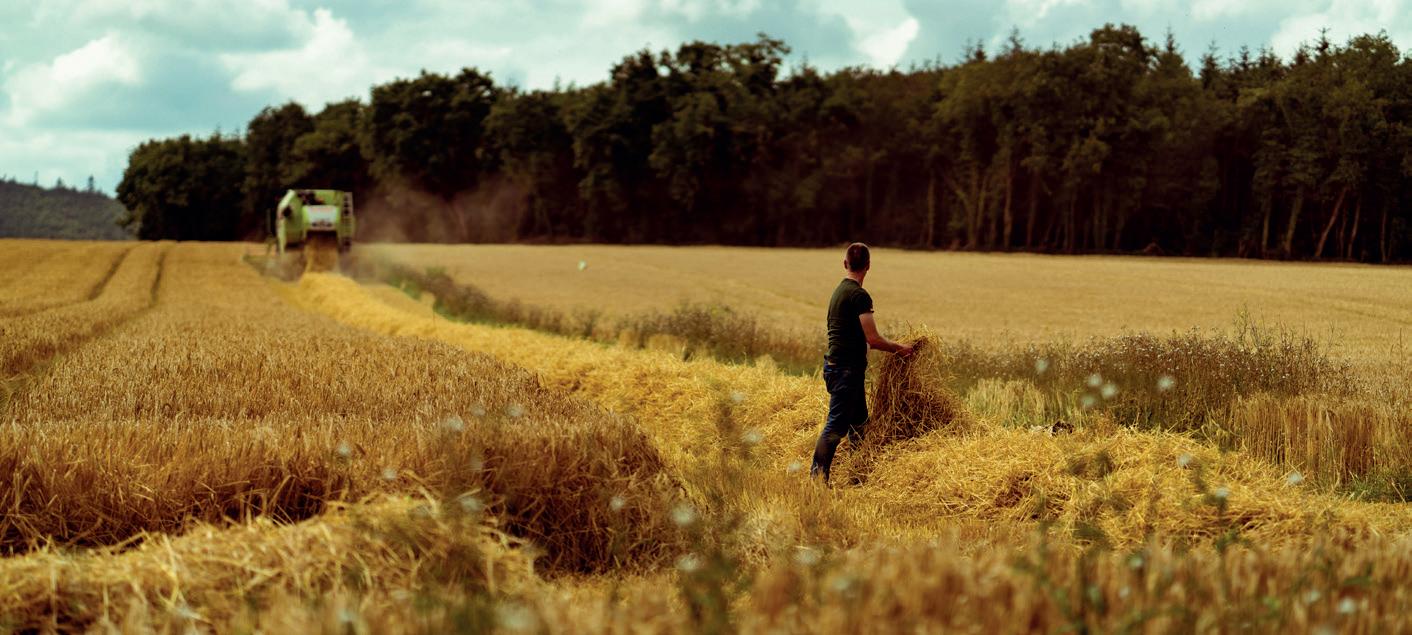
Can flavours be affected by different farming techniques?
Yes. For example, the flavour of the spirit that comes from barley grown in the Elton soil group has clove (earthy and spicy notes), whereas the flavour from Seafield soil is more of fresh fruit, dried fruit and floral. Different farming techniques can further enhance flavours. We use barley from organic and biodynamic farmers, which — again — completely changes the flavour profile of a single malt new mix spirit, often giving the spirit greater intensity of flavour. We’re demonstrating that what goes into the barrel matters. For us, whisky is agricultural produce — not a manufactured product.
What’s the difference between conventional and organic farming?
For last year’s harvest, 50% of the barley we use comes from conventional growers that use artificial treatments; but for our distilling requirements, these must be minimal. We started using organically grown barley
— which no one else was producing in Ireland, and now we’re the world’s largest producer — to see how this would impact the flavour of our whiskies. Organic is a natural farming method which shuns the use of chemicals, so it’s more sustainable.
What is biodynamic farming?
Biodynamics originated in 1924 and is used today in the world’s greatest vineyards. The principles are that, whereas organics is about a list of things not to put on the land, biodynamics goes further in treating the farm as a holistic system, creating special preparations to help enrich soil nutrients and microbial activity. It also works with nature in perceivably unusual ways — including following the lunar calendar to benefit the plants.
How else can flavour be changed?
By using old heritage varieties of barley that have fallen out of use. We went to the Department of Agriculture in Ireland and grew barley from three discontinued varieties and have since produced a heritage single malt from the Hunter variety of barley, which was introduced in 1959 but vanished in the 1970s. It’s about giving customers the choice of flavour.
knowledge-based food firms

Kerry Foods and The Kraft Heinz Company — to explore commercial opportunities in the sector.
Using state-of-the-art science to improve food development
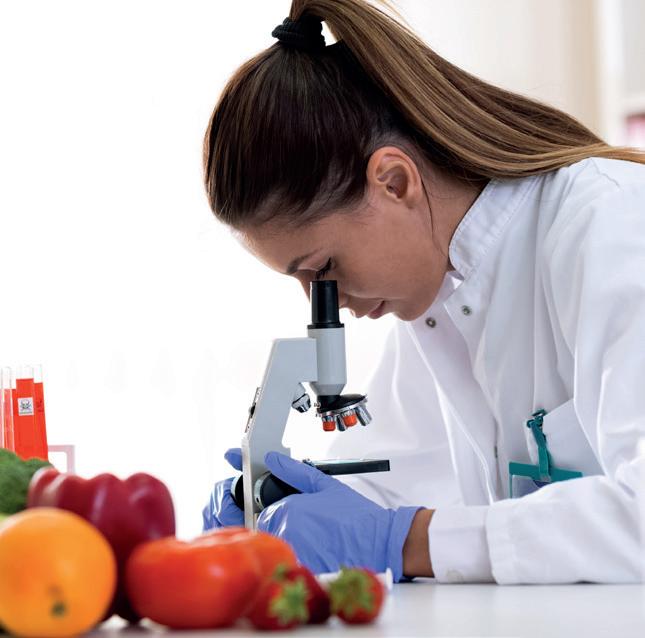
The microbiome is a community of organisms that live in — and on — our bodies. Over the last decade, this has become a growing area of research for the food industry.
WRITTEN BY Tony GreenwayWe live in a world of microbes,” explains Professor Paul Ross, Director of APC Microbiome. “We are breathing microbes in all the time, we are eating them, and they live on and inside our bodies. They’re everywhere. In fact, everyone has a natural bioreactor within themselves, composed of trillions of organisms, which has a huge capacity to break down the food we eat and influence our health in positive or negative ways.
Collectively, these organisms are known as the microbiome.”
The microbiome can either contribute to healthier ageing or exacerbate it, depending on its composition. It has become a growing area of research for the food
and pharma industries.
Over the last 20 years, Professor Ross and his multidisciplinary team at APC Microbiome, an SFI (Science Foundation Ireland) Research Centre based at University College Cork (UCC) — a collaboration between UCC and Teagasc (the Irish Agriculture and Food Development Authority) — have established themselves as global leaders in gut microbiota research.

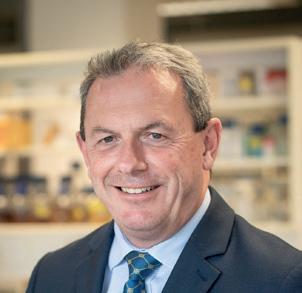
The aims of APC Microbiome are many and varied. For instance, it works with the agriculture, pharmaceutical, biotechnology and diagnostic sectors to investigate how intestinal microbiota influence health and disease — and develop new functional food ingredient solutions and therapies for lifelong debilitating gastrointestinal conditions.
It also partners with names in the food industry — such as

“Collaboration is critical,” says Professor Ross. “We want to co-develop knowledge around the microbiome using state-of-the-art science to bring safer, or health-benefiting new products into the food chain. Our research ranges from using natural, microbiome-based preservatives — instead of chemicals — to studying how food ingredients affect human microbiota.”
We now know that the food we eat can modulate the composition and function of the microbiome in ways that were previously unimagined — and food companies increasingly understand this.
“Over the last five years, the number of food companies approaching us has grown,” says Professor Ross.
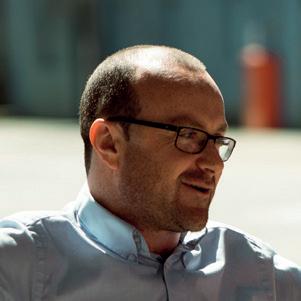
“They recognise that flavour and texture of food isn’t everything.
For truly sustainable product lines, food companies know they must focus on products and ingredients with a positive influence on our health — across everything from the gut and immune system to cardiac and mental health. The microbiome, therefore, has become an exciting target for functional food development.”
Why the best whisky producers go with the
Why microbes and gut health are a growing focus for the food industry
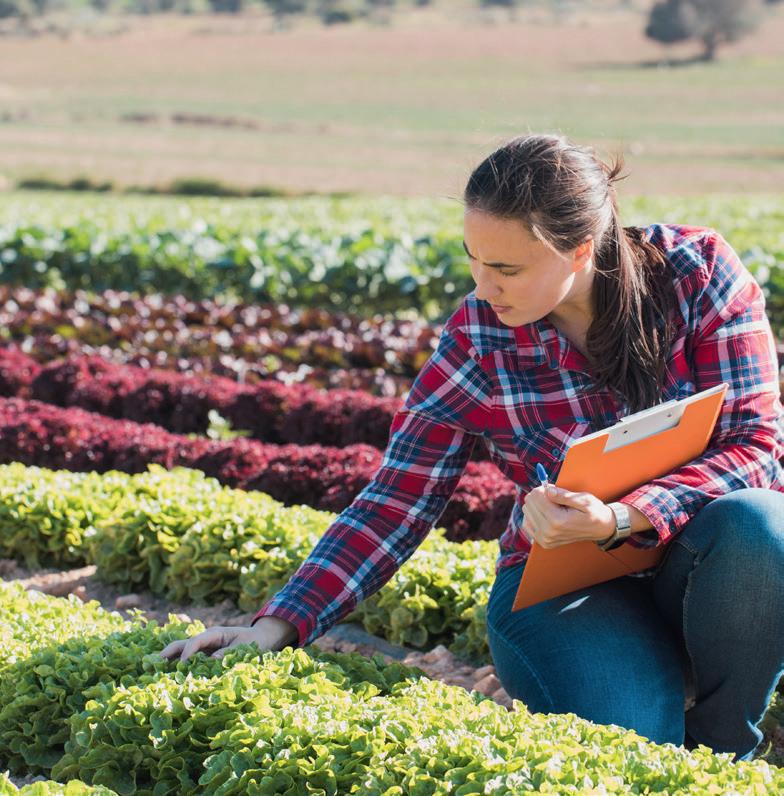
farmers, 85% of respondents said they are extremely willing to make future changes on their farms to reduce emissions.
Since Origin Green introduced carbon footprinting in 2013, the average carbon footprint on member beef and dairy farms has continued to follow a downward trend.
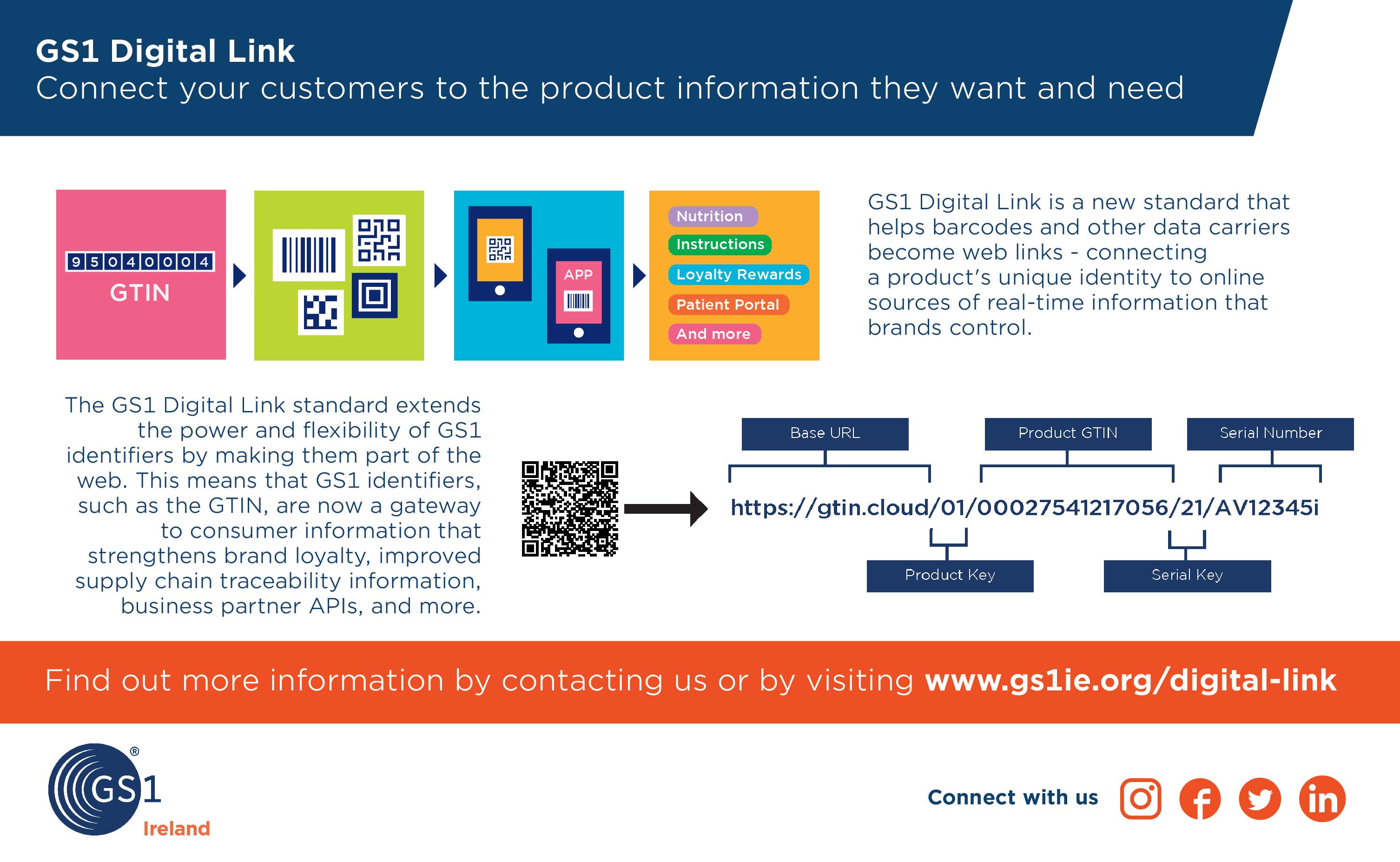
Bord Bia created Origin Green in 2012, a national sustainability programme that brings together the entire supply chain from farmers to food producers, food service and retail sectors. We engage with over 55,000 farmers and 300 participating companies, representing an opportunity to drive impact at scale.
Since its launch, we have delivered a recognised competitive advantage to the industry as customers and consumers around the world are looking for assurances that their food is sustainably sourced.

The European Green Deal, published in 2019, has set the EU economy on the path to climate neutrality by 2050. Ireland’s Climate Action Plan mirrors this commitment, setting a target of a 51% reduction in greenhouse gas emissions by 2030. The Climate Action Plan 2021 requires every sector of the economy to contribute to this.
The role of agriculture
Agriculture has been tasked with reducing emissions by 25% by 2030. While this target is ambitious, in a recent Bord Bia survey of over 1,200
There can be no doubt that a step change is now required in both the scale and scope of our actions around sustainability. Origin Green –Powered By Partnership is Bord Bia’s strategic response. We recognise that sustainability can’t be reduced to a single issue and that the partnership approach will drive more innovation and improvements across the supply chain.
Recognising the changing expectations of our stakeholders puts a greater emphasis on science-based targets, nature-based solutions and integrating circular approaches. We now look forward to the next era of development, where we partner with those who share our determination and collectively support the ambitions of the food and drink industry to grow sustainably. Doing the right thing for the planet, our consumers, the farming sector and the wider industry means doing the right thing together.
Leading scientists in Ireland are behind food research that helps industry, promotes better health and wellness, protects the environment and boosts food security and safety.
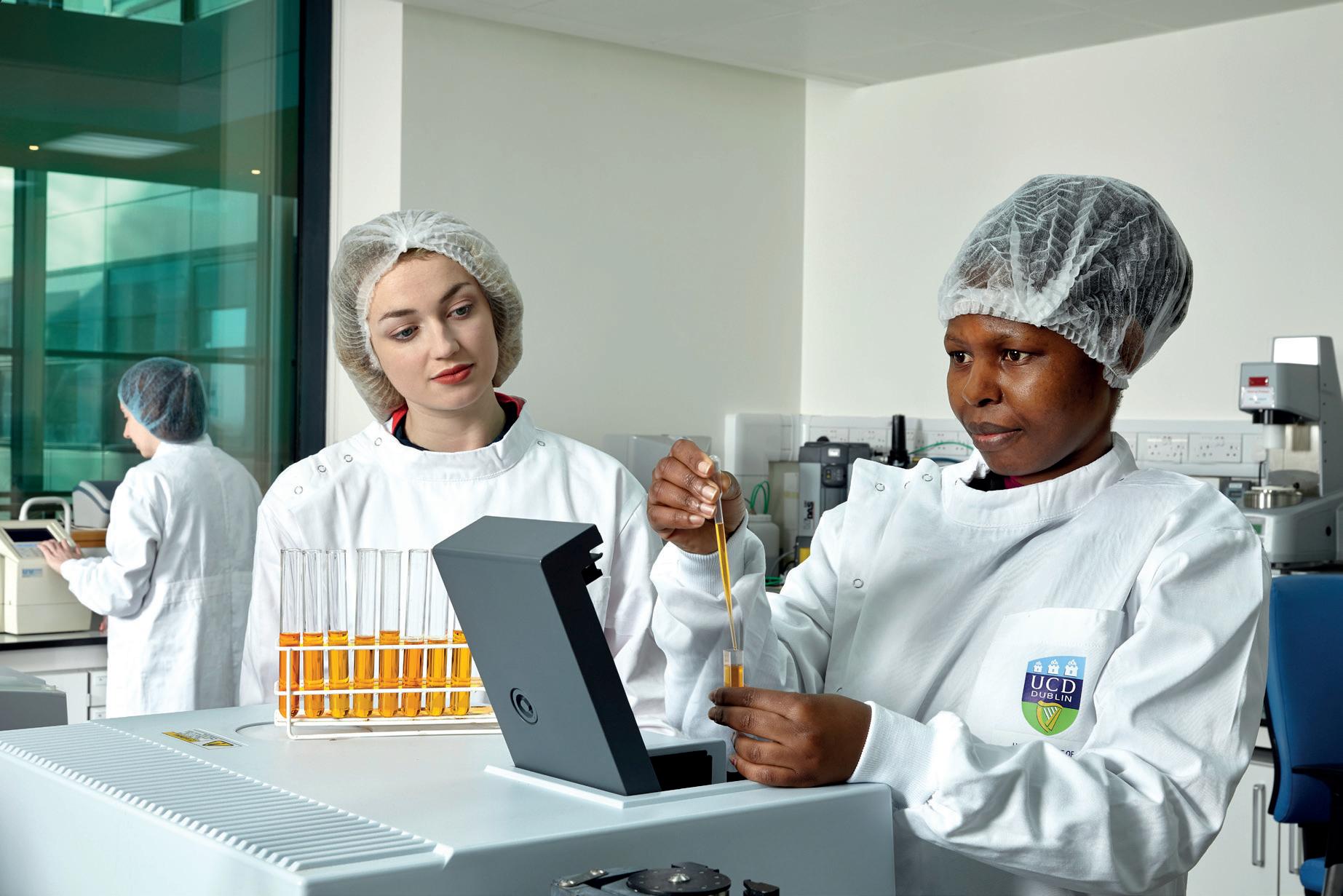
have food,” says Professor O’Riordan. “It must also meet their dietary needs; and it has to be safe, nutritious and fit their food preferences.’’
The developed world is in a good position in terms of safe and sufficient food. One of the problems we face in Western society is the overconsumption of food, leading to obesity and all of its associated health issues.” To counter this, the Institute is involved with a range of projects, including one that promotes the development of oats as a healthy food product and a climate-resistant crop in Wales and Ireland.
A pressing challenge in the developing world — alongside consistent food supply — is a lack of good quality protein and micronutrients. “As a university, we collaborate on issues like these with universities from all over the world because there are important learnings we can take from each other,” says Professor O’Riordan. “Finding solutions to global problems means reaching out to global partners.”
The food sector is facing a perfect storm. Demand for food is rising, yet we live in a world of finite resources with major issues including climate change and food waste. More sustainable, healthy diets are needed if we are to protect our environment, health and wellbeing; but with costs spiralling, consumers resort to buying less nutritious food with all of its related health implications.
The UCD Institute of Food and Health — based in University College Dublin — is dedicated to finding answers to these seemingly insurmountable problems by delivering scientific research that informs national and international policy, improves health and helps future-proof the global food systems.

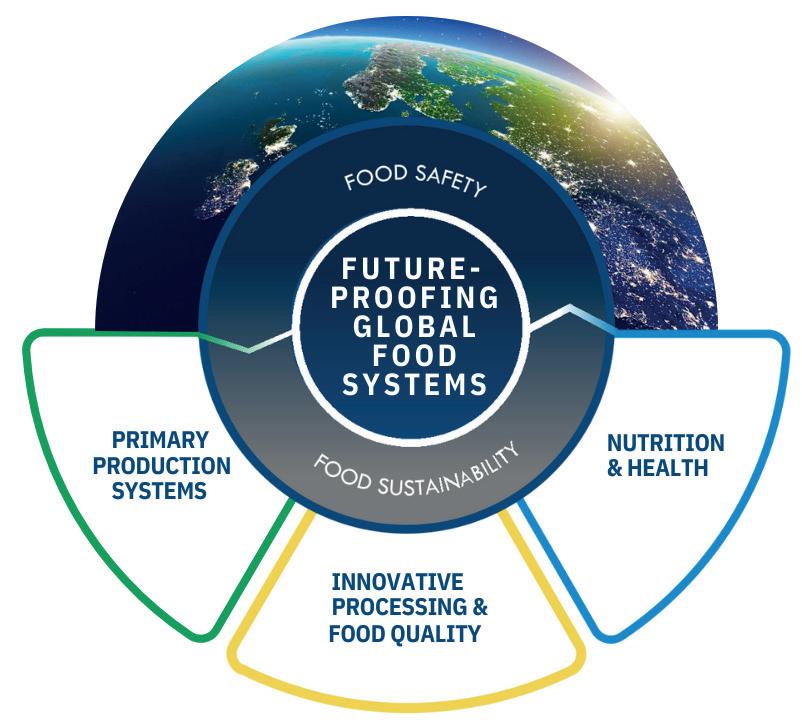
The university’s experts — ranging from food scientists, nutritionists and food engineers to social scientists, mathematicians and computer scientists — also work with the food industry, enabling companies in the sector to be more competitive. Plus, the Institute trains researchers, equipping them with the knowledge and skills to secure food systems for the future.
Research that keeps the consumer at its heart
“In many ways, the challenges we face make this the most exciting time to be working in the field of food and health research,” says Professor Dolores O’Riordan, Director of the UCD Institute of Food and Health.

“We always remember to keep the consumer at the heart of our research by answering key questions: How do we keep society healthy and food-secure? How can we ensure economic viability for all of society, while protecting the environment?”
In all of its investigations, the Institute takes a holistic view of the food chain. It considers activities from farm to fork — the production of food, through to its processing, distribution and consumption — while considering the implication of food waste at each stage.
“The integration of actors involved in the food chain is complex,” admits Professor O’Riordan. “However, our experts have a deep understanding of every part of the food chain.” Connecting all of this expertise has the power to deliver first-class scientific solutions.
Part of the Institute’s vision is to make scientific discoveries that ensure food and nutrition security. “It’s not enough to ensure people
The pandemic made us more aware of the importance of food security and healthy eating. “This provides an opportunity for behavioural change along the food chain,” says Professor O’Riordan. “Farmers need to adapt their practices to ensure they are more environmentally friendly and encourage biodiversity. Processors need to be more energy-efficient and offer nutritious foods. Consumers must also adopt more sustainable diets to look after their health and wellbeing. Meanwhile, the Institute will do all it can to support change by continuing to produce science that can be translated into real-world impact.”
Leading scientists in Ireland are behind food research that helps industry, promotes better health and wellness, protects the environment and boosts food security and safety.
With targets to achieve net zero emissions by 2050, farmers need to be supported to raise livestock more sustainably.
Livestock farming is under pressure to reduce GHG emissions that are caused by animals such as cattle that release large quantities of methane, carbon dioxide and nitrous oxide into the atmosphere.
Priorities in supporting livestock farmers
EIT Food, in collaboration with Innovate UK KTN, explored how the ruminant livestock industry in the UK and Ireland can achieve net zero by 2050 and identified six priority areas:
• An urgent need for an internationally agreed and standardised measurement system to monitor GHGs from the livestock industry so that changes or interventions can be monitored and verified over time.
• Introducing policies that reward farmers to support the transition to net zero. Farmers should have an opportunity to provide input into new policies or strategies to ensure they are fair and achievable.
• Promoting land management strategies. This includes transitioning to agroecological or regenerative agriculture practices that can enrich soils and increase biodiversity.
• Expanding the number of demonstrator farms to enable research, knowledge transfer and training around new technologies to accelerate the transition to net zero.
• Optimising the efficiency and productivity of livestock, which could include revising the age of ruminant livestock slaughter.
• Creating a holistic response to carbon sequestration to ensure higher yields from high-quality soil that absorbs carbon from the atmosphere.
The priority areas need further exploration. However, they act as a starting point for farmers, investors and policymakers to take meaningful action that will support the ruminant livestock industry to achieve net zero targets.
“The ruminant livestock industry has a critical role to play in achieving net zero emissions by 2050. To help this transition take effect, input and support are required from all players along the food supply chain,” says Dr Jayne Brookman, Chief Partnership Officer at EIT Food.

EIT Food is the world’s largest food innovation community which is supported by the European Institute of Innovation and Technology, a body of the European Union.

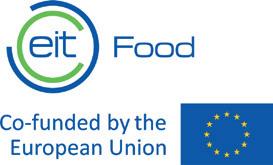 Dr Jayne Brookman Chief Partnership Officer, EIT Food
Dr Jayne Brookman Chief Partnership Officer, EIT Food

Sustainability in the food industry is about reducing food waste and lowering the impact of food production on our natural environment as produce moves along the supply chain — from field to fork.
By reducing food waste; limiting resources such as energy, labour, and water consumption; and adopting more sustainable business models and practices, food companies can benefit the environment, society and the economy in the long run.
Industry effort needed for sustainable food supply chain Sustainability is vital along the entire food chain. Waste in one area may increase prices for the companies that sit further down the supply chain. In addition, some of the resources that went into producing the food can also be wasted.
Therefore, an industry-wide effort to increase sustainable practices can positively affect all companies that operate as part of the food supply chain and the consumers who purchase these products.
Paying attention to consumer needs and habits
Consumers increasingly play a pivotal role in driving food sustainability practices. With their increasing preference for food that reduces their carbon footprint, more and more food producers are improving their ethical and sustainable production lines to meet these demands.
Another reason why it’s a good time to look at ways to improve sustainability efforts through supply chains is that food company executives as individuals are increasingly more on board with the idea and are seeking change.
Technology and policymakers enable sustainable food supply chain Technology and innovative advancements such as the use of blockchain, new machinery, processing equipment and embedded systems to improve traceability, monitoring and controlling water usage and energy consumption are being adopted at an extremely fast rate.
Business leaders increasingly realise now is the time to explore sustainable supply chain options and see which ones work best. Legislators continually set climate-related targets and stress that reaching them will require significant changes from everyone; and in some organisations, we may start to see executive bonuses linked to sustainability practices.
In the end, a sustainable food supply chain is only possible if industry and policymakers pay attention to consumer and environmental needs. Their decision-making and tech innovations must support the execution of these efforts and get us quicker to where we need to be — and sustainably.
Agri-food is Ireland’s oldest and largest indigenous exporting sector and reaches out from every corner of the country to global markets. In 2022, the sector employed 164,900 people, representing 6.5% of the total workforce across 135,000 farms, 2,000 fishing vessels and aquaculture sites and around 2,000 food production and beverage enterprises.
It is crucial to the economy, particularly in rural and coastal areas. The sector is supported by EU and national funding of over €2 billion annually, delivered through Department of Agriculture, Food and the Marine schemes.
sector
As the world becomes increasingly digitised, the agri-food sector must embrace technology and adopt a digital strategy to improve efficiency, productivity and sustainability. The use of digital technology in agriculture can lead to a more datadriven approach to farming, enabling farmers to make better decisions and optimise their resources.

The Department of Agriculture, Food and the Marine is currently undergoing a digital transformation, incorporating digital technology to reimagine the business of the agri-food sector in the digital age. Digital transformation has helped us move away from an analogue, paper-based system — towards one that ensures the availability of online options for consumers.
To make further progress, we must be agile; agility is and must be at the heart of everything we do as a Department. We must also continue
Simon McKeever Chief Executive, Irish Exporters Associationto leverage data from both internal and external sources. To leverage data and drive the digital agenda, we have built a corporate-wide data warehouse and self-service platform.
Digital enablement for the agricultural sector
Being digital is our priority to maximise efficiency and ensure that the department continues to support enhanced prosperity for the agricultural sector. To enable this, we have introduced modern containerised platforms to the operational business of the department.
IT continues to be under intense pressure to increase agility and speed up the delivery of new functionality. These platforms allow us to do that and support our digital journey. They enable our digital and modernisation programme. Digital technology can enable more sustainable and environmentally friendly farming practices. The world is becoming increasingly digital, and Ireland is no exception. With the rapid pace of technological advancement and the ever-increasing reliance on digital technologies, DAFM recognises the importance of having a comprehensive framework for the integration of digital technology.
Why we need to modernise the agri-food sector withThe agri-food sector includes primary production in farming, fishing and forestry and the processing and manufacture of food, beverages and wood products. Louise McKeever Chief Information Officer (CIO), Department of Agriculture, Food and The Marine WRITTEN BY Laura Elphick
An industry–academic collaborative research centre and its partners are driven by an agenda to explore long-term growth opportunities in the Irish dairy sector through technology.
The Dairy Processing Technology Centre (DPTC) is driving growth, resilience and sustainability in Irish dairy processing through technological innovations.
A ‘safe space’ for applied research in Irish dairy
Dr Anne Marie Henihan Centre Director,The Centre’s Director, Dr Anne Marie Henihan, explains: “We provide independent, evidence-based solutions by harnessing the collective power of our network. Our research has an impact; we deliver applied innovative solutions for industry.”


DPTC works on common sectoral challenges, demonstrating the sector’s commitment to decarbonisation. Through collaboration with dairy companies and the academic sector, they aim to enable a net zero future for dairy processing.
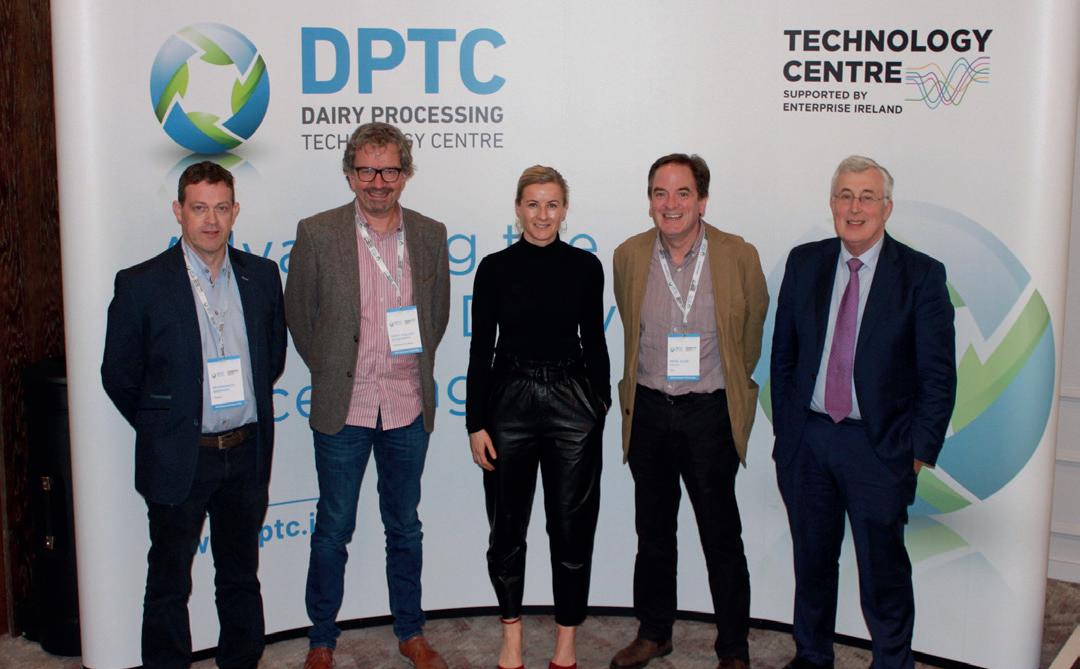
Short and long-term sustainability targets
The core research programme and their Sustainability Innovation Forum unite experts from the sustainability arena to examine cross-sectoral technologies and processes to disrupt the dairy industry.
The programme aims to place the dairy processing industry at the heart of a regenerative circular economy, promoting economic growth, but with less environmental impact: “We are actively supporting the industry to develop and adopt robust strategies and technologies to improve environmental and economic performance,” says Prof Vincent O’Flaherty, Lead Investigator on sustainable processing.
Adaptive processing and expanding membership DPTC have core expertise in adaptive processing for the dairy industry, which is vital to maximising production while increasing efficiencies.
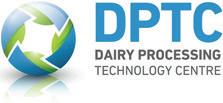
Dr Diarmuid Sheehan, Lead Investigator on adaptive processing, gives an example: “Milk and dairy products are nutrient-dense but very complex, with big changes in composition throughout the year. Our research gives a better understanding of this variability across the lactation cycle — and we can use this knowledge to recommend adaptive process strategies, extending our partners’ seasonal production windows.”
The Centre often looks outwards
to achieve its goals. Henihan explains: “Our researchers bring our innovations and technologies to a certain ‘technology readiness’ level, de-risking investments for our partners. Our associate members are instrumental in bringing us to the next stage — helping to translate and implement these technologies for our core industry partners.”
She concludes: “Our key differentiator is that we bring together the key players across the sector. We want to continue expanding our membership to include more experts, more technologists and more equipment providers. Through our research programme, we are also nurturing the next generation of research talent, ensuring that Ireland will continue to lead the way in dairy processing sustainability.”
Climate change is affecting the food industry. Now, everyone — producers, manufacturers and consumers — is thinking about sustainable food that’s better for our own health and the health of the planet.
“That’s critical because students have to be able to put theory into practice,” explains Cruickshank.
Anna Cruickshank Senior Lecturer in the School of Culinary Arts & Food Technology, Technological University Dublin“We’ll increasingly see a shift away from menus that are dairy and meat-heavy,” says Anna Cruickshank, Senior Lecturer in the School of Culinary Arts and Food Technology at Technological University Dublin.
Modern food education for passionate foodies “Chefs, producers and manufacturers will have to prepare for an increase in consumption of hybrid products, insect and plant-based meals. Everyone will have to become more involved with their ingredients and suppliers. Plus, they will need to understand the importance of seasonality and sustainability — because the consumer is more aware of these things,” says Cruickshank.
This new culinary world needs people with a broader range of skills, which is why Technological University Dublin is offering students food-related undergraduate and postgraduate courses in everything from Professional Cookery to Botanical Cuisine and Global Food and Drink Leadership.
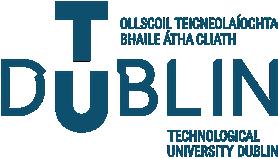
Students on the courses are taught in state-of-the-art facilities — including kitchens, bakeries, wine-tasting labs and sensory analysis rooms — and teaching is underpinned with a significant ‘hands-on’ element.
Career opportunities are varied. “Our students have gone on to work in top-level restaurants around the world and won Michelin stars,” says Cruickshank. “Many have set up their own businesses or become technologists, teachers, food safety consultants, university lecturers and speakers. Others are working for major manufacturers as product developers.”
Bridging the gap between ‘cooking’ and ‘science’ “Students studying on our master’s courses, including the MSc in Culinary Innovation and Food Product Development — don’t need amazing culinary skills to start with. They do need to be ‘foodies,’ however, because they’ll be reading about food, talking about food, eating food, thinking about food and dreaming about food.”
Product development will play a vital part in the food industry’s future, says Cruickshank. “Manufacturers want people with science know-how, but they also want innovation chefs who can apply culinary skills. In the past, there was a divide. You could study cooking or science, but the two never met. This MSc in Culinary Innovation and Food Product Development bridges that gap.”
The food industry is undergoing big changes, notes Cruickshank. “But those changes are creating lots more career opportunities,” she says. “And that’s an exciting thought.”
The food industry is changing. Anyone looking for a career in the sector will need the right education to cope with its challenges — and capitalise on its opportunities.
The food industry is undergoing big changes, but those changes are creating lots more career opportunities.
With the demand for more affordable, nutritious, and sustainable food forecast to grow, researchers and industry are developing food products and ingredients with added health benefits to promote wellness.
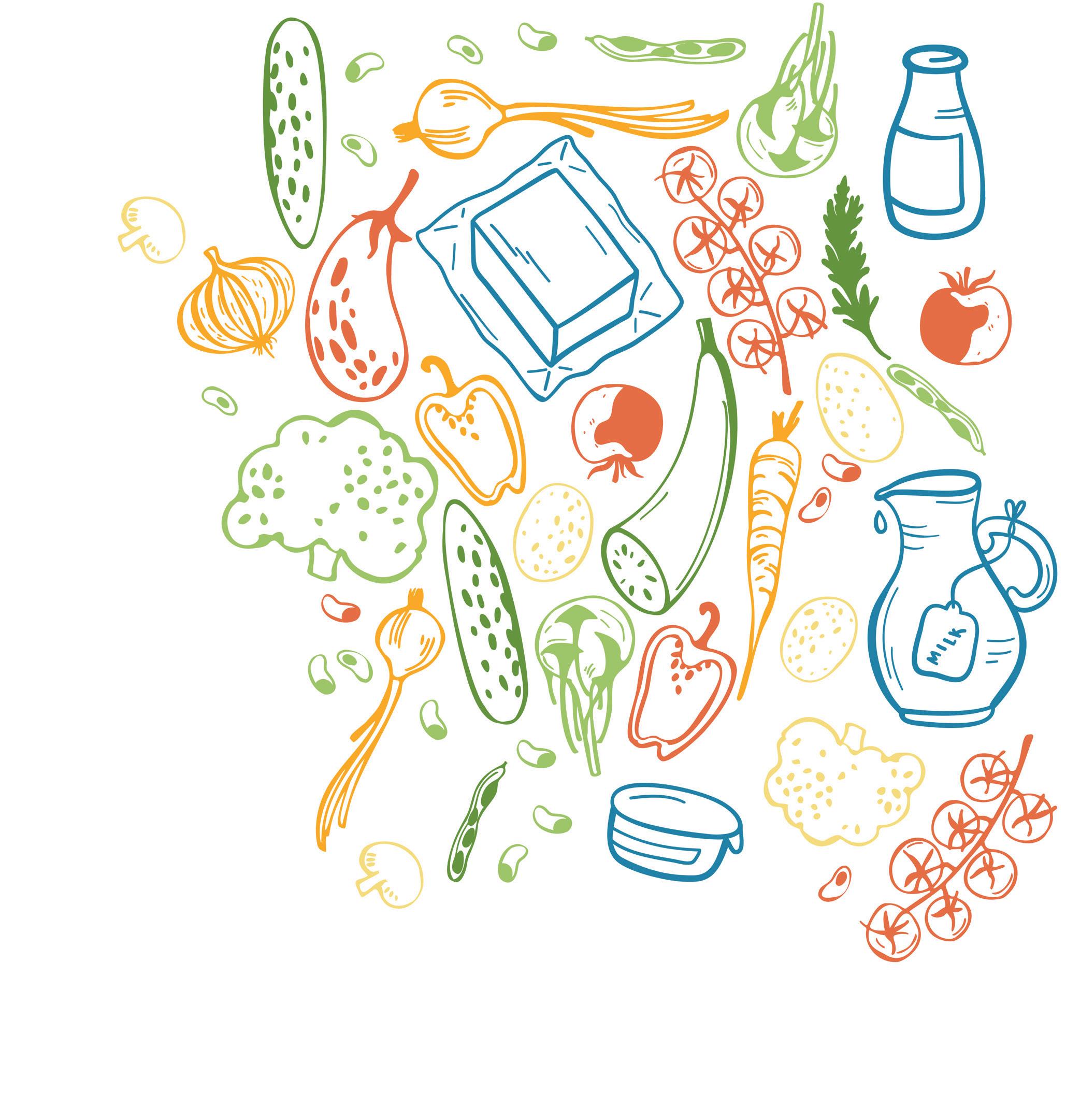
Nowadays, we are savvier about the quality of the food we eat and the impact it can have on our bodies. “Over the last decade, there has been a heightened awareness among consumers about the importance of good, nutritious food,” agrees Dr Nessa Noronha, Director of Food for Health Ireland, a national scientific research organisation dedicated to improving health through innovation in food and ingredients.
More consumers want ‘functional’ food with added health benefits
“There’s an increasing realisation that ‘you are what you eat,’ and the foods we eat have direct implications for our health and wellness,” says Dr Noronha. A growing number of consumers are looking to proactively manage their health, especially those focused on specific needs — immunity, energy, digestion — through their diet.
It’s no wonder the ‘functional foods’ (another way of saying ‘food with added health benefits’) sector is forecast to be worth more than €450 billion by 2028.
As we’re all living longer, it’s good to know that healthy food can also promote healthy ageing. “The demand for nutritional solutions to support healthy and active ageing is growing,” reveals Dr Noronha.
“That stands to reason because we want to sustain our bodies so that they are fit in our later years, and food plays an enormous role in that. Consumers are seeking a more holistic approach to healthy ageing, where they are focused on balancing physical, mental and emotional aspects. Nutritional solutions that support both physical and emotional wellbeing are thriving and can target the needs of different generations.”

Because consumers are demanding healthier, more nutritious food, companies are — naturally enough — very keen to supply it. Food for Health Ireland, backed by Enterprise Ireland and food companies, is hosted at University College Dublin and translates research from its network of universities, academics and experts into commercially viable products for numerous food industry firms. Projects have included the metabolic and cardiovascular health benefits of Irish grass-fed cheese with a focus on natural functionality; developing fermented ingredients to enhance digestive comfort using state-of-the-art bioconversion technologies. They have also worked on specific solutions for individual companies; for example, providing evidence-based research to
support ingredients that can alleviate knee pain and lower blood glucose levels.
“We create value for companies, either from their existing ingredient portfolio or with new, bespoke solutions,” says Dr Noronha. “Many of them don’t have expertise around, for example, cell culture research or human intervention-based studies, so they come to us. The research we do for firms is very market-focused and collaborative. It’s also consumer-driven.”
Creating food innovation to help improve human health Food for Health Ireland often brings market competitors together to collaborate on a shared vision. That’s unusual, but it works, explains Dr Noronha. “They see the value of working together on pre-competitive projects because they can achieve much more. For example, Kerry, Tirlán (formerly known as Glanbia Ireland), Carbery and Dairygold worked together on a pre-competitive programme to support sustainable Irish grass-fed dairy production.”
The demand for more affordable, nutritious and sustainable food is only going to grow. “Personalised nutrition is going to be key,” she adds. “So, companies have the opportunity to personalise nutrition solutions for the mass market. The latest technology will come into play, too, with firms in the sector utilising AI and machine learning to predict the best food combinations that will help support a better life.”
“Then there’s the field of using artificial means — such as precision fermentation — to generate food and ingredients. How consumers will respond to it and what regulations will surround it are different questions, so we keep a close eye on that. But there’s no doubt that this fast-moving, ever-changing sector can improve human health.” Dr Noronha concludes.
Since 2008, Food for Health Ireland has created a unique innovation ecosystem that supports innovation in foods and ingredients with health benefits, supporting companies from concept to consumer. For more information, visit fhi.ie

How innovative research is creating ‘food with added health benefits’
The demand for more affordable, nutritious and sustainable food is only going to grow.WRITTEN BY Tony Greenway